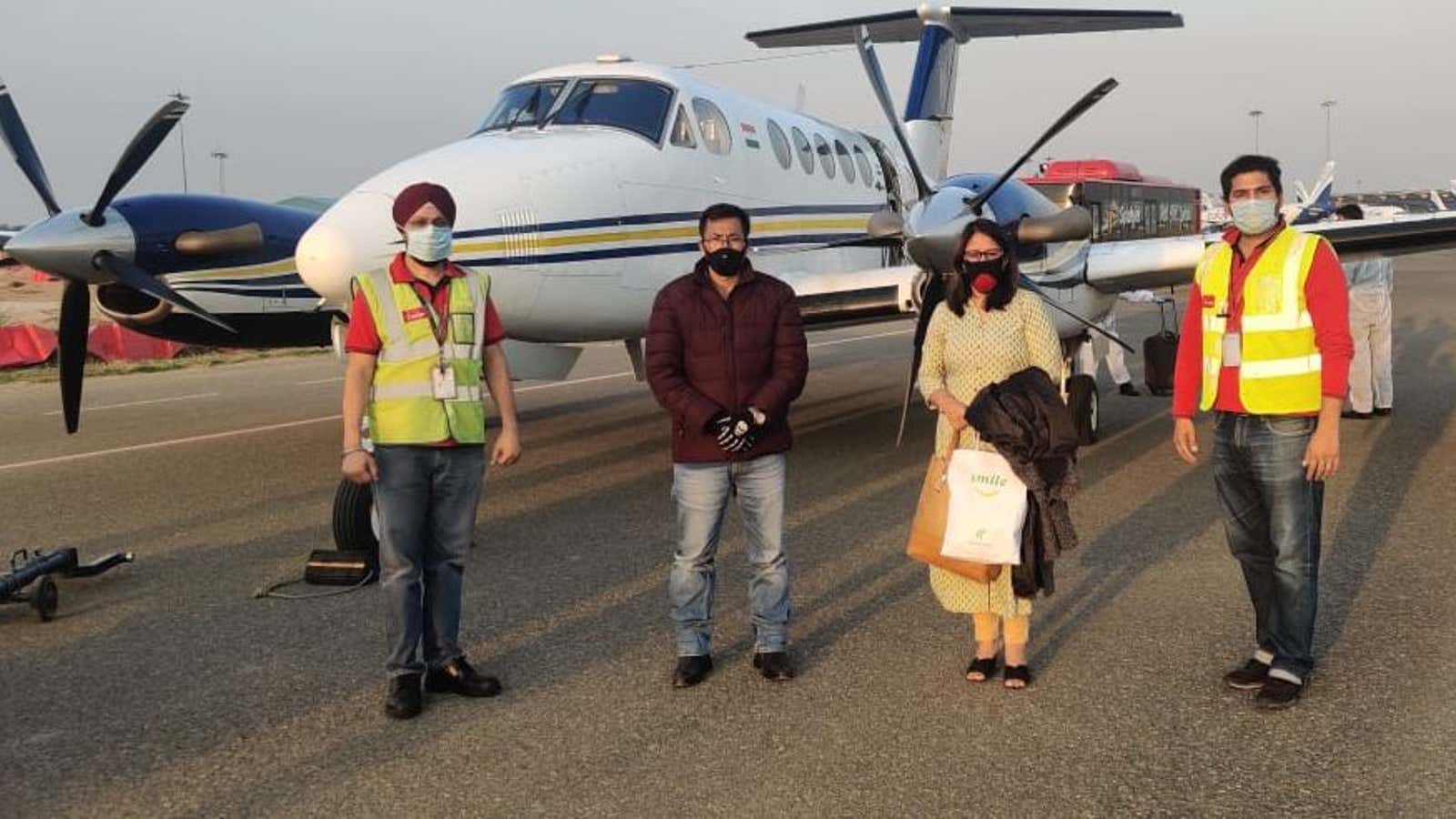In the face of all odds, air ambulances have been providing stellar services in India through the weeks-long Covid-19 lockdown in the country.
For instance, a Kolkata couple flew their son to Mumbai in April for an urgent brain tumour surgery. They used the services of Accretion Aviation, a charter plane aggregator. In the same month, one middle-aged woman flew out of India’s financial capital on the same firm’s flight to her hometown, Indore, after receiving urgent treatment for a liver ailment. On April 25, SpieceJet’s new subsidiary, SpiceCare, flew Dingko Singh, an Asian Games gold medallist boxer, from Imphal, Manipur, in India’s northeast to Delhi for cancer treatment.
These are only some such examples. Demand for medical evacuation has risen constantly since March 24 when prime minister Narendra Modi announced the nationwide shutdown, including all means of transport.
“Normally, we fly on an average 70-80 patients a year. Since the lockdown, we have witnessed an increase of at least 20%,” said Rahul Muchhal, founder of Accretion Aviation.
SpiceCare, launched in April, gets requests almost every day, according to a company spokesperson. “There are close to 500 pending requests at the moment,” the spokesperson told Quartz in an email.
And all this despite air-ambulance services being expensive, costing up to Rs18 lakh ($23,960.86) depending on the distance. This is, on average, almost 80% higher than normal airfares.
“Our starting rate is Rs95,000 per flying hour. The charge for the service is a calculated base to the base fare for the number of hours flown,” the SpiceCare official said.
India has seven or eight air ambulance operators, while some private medical institutions like Apollo Hospitals operate their own services. Each firm flies 70-80 patients annually, various company sources told Quartz.
Turbulence ahead
Rising demand, however, does not guarantee a smooth flight for air-ambulance firms.
While the lockdown exempted chartered medical service flight, on April 15, authorities clarified that even these must fulfil certain conditions.
“The operator shall produce a letter from the state/UT government or the district administration in support of the movement of the patient by the air ambulance flight,” a notification from the civil aviation ministry read.
This has made the process tedious, say operators.
“Earlier it used to take a maximum of four to five hours to obtain permission. Now, with mandatory Covid-19 tests and permissions from the state governments or the district magistrate, processing can take at least seven days,” Mucchal said.
Besides, getting permission to fly isn’t easy.
Air ambulance operators are, however, hopeful of better days. “Things should return to the way as they were earlier soon. The process (to obtain permissions) is lengthy but these are unprecedented times and everyone is trying their best within their respective capacity to do whatever they can,” Mucchal said.
Customers, too, understand this, he added. “So far, we have flown about 10 flights during the lockdown, including patients who do not want to miss their chemotherapy sessions in Mumbai, and all of them were thankful.”
